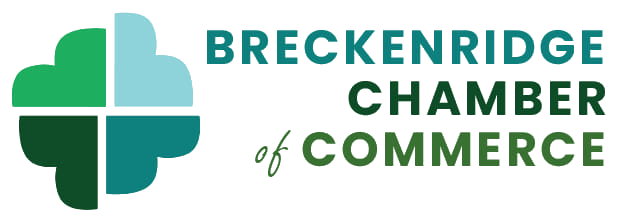Maximizing Efficiency: How Small Businesses Can Leverage Workflow Automation
In today’s competitive landscape, small businesses need to operate with precision and agility to stay ahead. Efficiency is the cornerstone of success, and one of the most powerful ways to achieve it is through workflow automation. By automating repetitive tasks, reducing manual errors, and streamlining processes, small businesses can free up valuable time and resources to focus on growth. The key is implementing automation strategically—understanding which workflows need improvement, selecting the right tools, and ensuring a seamless integration into existing operations. With a well-planned approach, automation can transform the way a small business operates, leading to increased productivity, cost savings, and improved customer satisfaction.
Identifying Bottlenecks in Daily Operations
Before diving into automation, you need to assess which processes are slowing your business down. Look for repetitive, time-consuming tasks that consume valuable human effort, such as data entry, invoicing, or customer follow-ups. These bottlenecks not only hinder productivity but also increase the risk of errors. Conducting a workflow audit allows you to pinpoint inefficiencies and determine where automation can have the most impact. Once you identify these problem areas, you can begin implementing technology-driven solutions to optimize performance.
Automating Meeting Notes for Seamless Collaboration
An AI-powered meeting notes summarizer can transform lengthy transcripts from Microsoft Teams and Zoom into clear, actionable insights, allowing your team to focus on discussions rather than documentation. By automatically extracting key decisions, tasks, and follow-ups, it ensures that no critical information is lost or misinterpreted. This eliminates the need for manual note-taking, reducing errors and freeing up valuable time for more strategic work. As you explore your options for workflow automation, integrating AI-driven meeting summaries can significantly enhance collaboration, keep projects on track, and maintain organization with minimal effort.
Choosing the Right Automation Tools
With a wide array of automation tools available, selecting the right ones is crucial. Small businesses should focus on tools that integrate seamlessly with existing software and address their unique operational needs. For example, platforms like Zapier can connect different apps, while CRMs like HubSpot or Salesforce automate customer interactions. Payroll and accounting software such as QuickBooks can streamline financial management. The key is finding tools that simplify processes without overcomplicating your workflow, ensuring a smooth transition into automation.
Enhancing Customer Communication
Automation isn’t just about internal processes—it can also improve the way you interact with customers. Chatbots, automated email responses, and appointment scheduling tools can enhance customer service by providing timely and consistent communication. By automating responses to common inquiries, you free up time for your team to handle more complex customer needs. Additionally, personalized automation, such as follow-up emails based on customer behavior, can help nurture relationships and improve retention rates without requiring constant manual input.
Optimizing Task and Project Management
Small businesses often juggle multiple tasks simultaneously, making project management a critical aspect of efficiency. Automated task management tools like Trello, Asana, or Monday.com help teams stay organized by assigning tasks, setting deadlines, and sending reminders. By reducing reliance on manual tracking, these platforms ensure that nothing falls through the cracks. Automation can also generate reports that provide insights into team performance, helping you refine workflows and allocate resources more effectively.
Streamlining Financial Processes
Financial management is a vital yet time-consuming function for any business. Automating invoicing, expense tracking, and payroll processing eliminates administrative burdens while reducing human errors. For instance, automated invoice generation and payment reminders can accelerate cash flow, ensuring timely payments from clients. Expense tracking tools that sync with business bank accounts allow for real-time financial monitoring, helping business owners make informed decisions. These automations save time and provide greater financial accuracy and transparency.
Improving Inventory and Supply Chain Efficiency
For businesses that manage inventory, automation can be a game-changer. Inventory management software can track stock levels in real time, send reorder alerts, and even automate procurement processes. This prevents stock shortages or over-purchasing, ensuring optimal inventory levels. Additionally, supply chain automation tools can enhance vendor communications and streamline order fulfillment, reducing delays and improving efficiency. By integrating these solutions, small businesses can maintain a more agile and cost-effective supply chain.
Ensuring Scalability for Future Growth
One of the most significant benefits of workflow automation is its ability to scale alongside your business. As your company grows, automation can handle increased workloads without requiring a proportional increase in staff. This allows you to expand operations without being bogged down by administrative burdens. Whether it's scaling customer service, managing higher transaction volumes, or coordinating larger teams, automation ensures that your business remains efficient and adaptable. By investing in automation early, small businesses lay the foundation for long-term success and sustained growth.
For small businesses looking to maximize efficiency, workflow automation is not just an option—it’s a necessity. By identifying inefficiencies, choosing the right tools, and streamlining operations, businesses can free up valuable time, reduce costs, and improve customer experiences. Automation empowers teams to focus on high-value tasks, fosters better decision-making, and ensures scalability for future growth. In an era where efficiency defines success, embracing automation is the key to staying competitive and unlocking new levels of productivity.
This Hot Deal is promoted by Breckenridge Chamber of Commerce.








